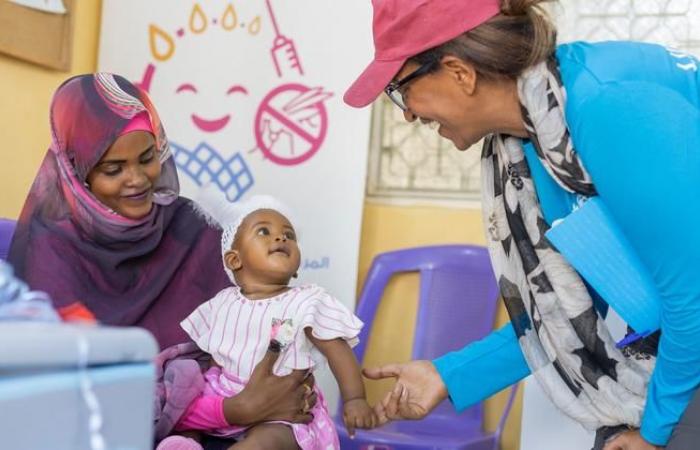On the occasion of world Malaria Day, the World Health Organization (WHO) said that progress has been hampered in many places by the fragility of health systems and increasing threats such as resistance to drugs and insecticides.
Many risk groups still do not benefit from the necessary services to prevent, detect and treat malaria. Climate change, conflicts, poverty and population trips aggravate these problems.
Threat to years of advance
These new challenges are involved in a global context of “budget cuts”, which could further compromise the progress made in many endemic countries and thus jeopardize millions of additional lives.
“The history of malaria is sorely shows us that when we turn our attention, the disease resurfaces and especially affects the most vulnerable. But history also shows us that it is possible to overcome malaria with a strong political commitment, sustainable investments, multisectoral action and the mobilization of communities, “said Dr. Tedros Adhanomesusus, Director General of WHO.
More than half of the 64 WHO offices located in the Palustre Endemia countries which participated in a recent assessment of the WHO’s balance sheet reported moderate or serious interruptions of the services to combat malaria.
Almost 13 million lives saved since 2000
Despite significant progress, malaria remains a serious public health problem. In 2023 only, the WHO estimated the number of malaria and almost 600,000 cases at 263 million the number of deaths due to this disease in the world.
About 95 % of deaths occurred in the WHO African region, where many people at risk still do not have access to the services required to prevent, detect and treat this disease.
Note that in the late 1990s, the world leaders and leaders have laid the basics of remarkable progress that was made in the fight against malaria worldwide. Thus, more than two billion cases of malaria and nearly 13 million deaths have been avoided since 2000.
To date, the WHO has certified that 45 countries and a territory were free from malaria, and many countries where the burden of morbidity is low continue to progress regularly in order to eliminate the disease. Of the 83 countries where malaria remains endemic, 25 reported less than 10 cases in 2023.
Deployment of new vaccines
This is why, the WHO has been putting for several years in promising investments, including the development and deployment of new antimalarial vaccines.
This is the case of Mali, which will introduce antimalarial vaccines this week alongside 19 other African countries. According to WHO, the generalization of antimalarial vaccines in Africa should save tens of thousands of children each year.
At the same time, the increased use of a new generation of insecticide mosquito nets will reduce the load of morbidity. These new mosquito nets represented almost 80 % of the mosquito nets distributed in sub -Saharan Africa in 2023, against 59 % the previous year.
The World Day to Combat Malaria 2025, placed under the theme “Reinvesting, Reimagine and Reviving our common efforts to put an end to malaria”, is an opportunity to strengthen political and financial engagement to preserve the hard -won achievements obtained in the fight against malaria.








